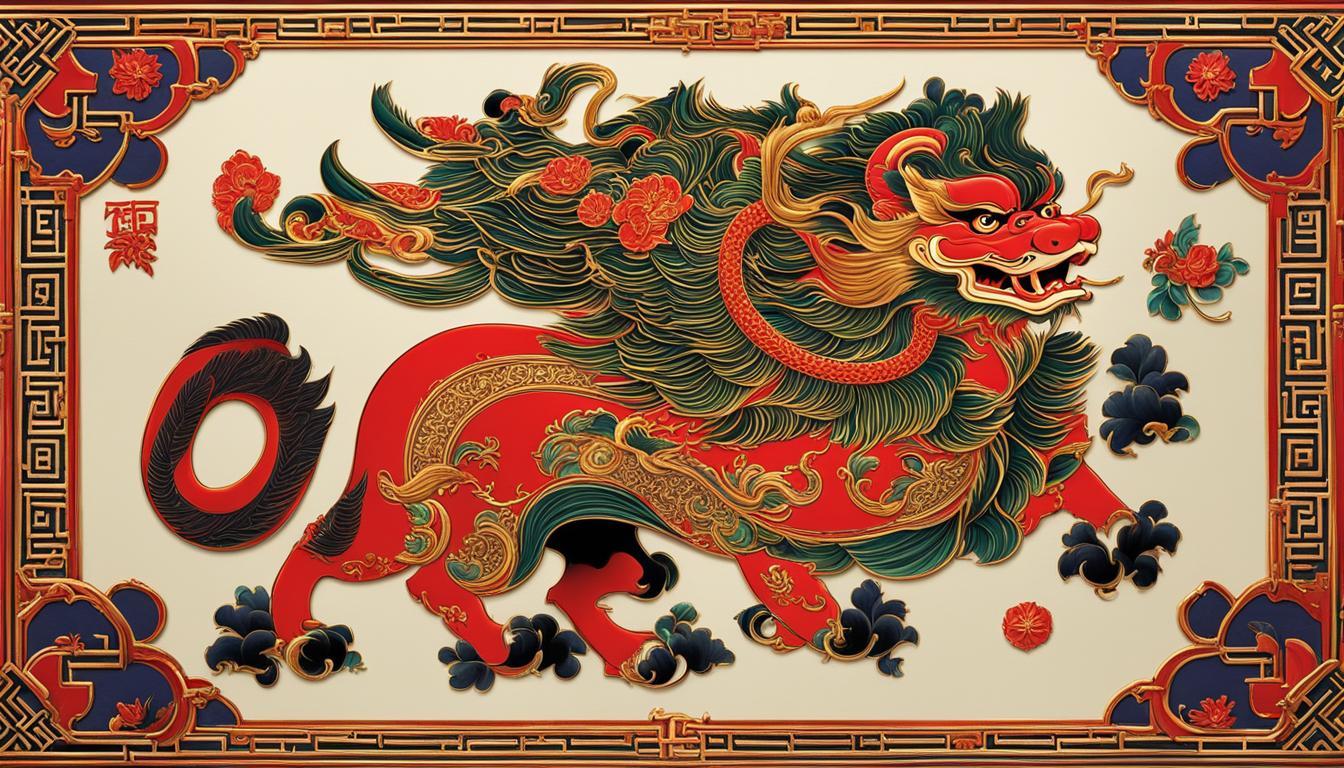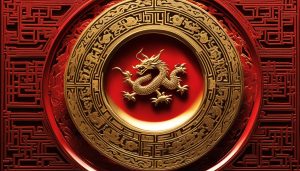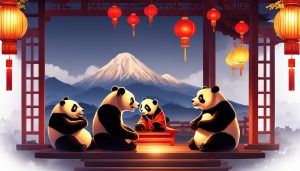According to Chinese culture and beliefs, there are several animals that are considered to bring good luck. These animals are deeply rooted in Chinese traditions and have symbolic meanings associated with luck, prosperity, and positive energy. Let’s explore these lucky animals and their significance in Chinese culture.
Contents
- 1 Feng Shui Animals: Bringing Good Luck to Your Home
- 2 Chinese Zodiac Animals: Symbols of Luck and Personality
- 3 Native Animals of China: Symbolic and Majestic Creatures
- 4 Animal Symbols in Chinese Art and Decor: Enhancing Luck and Prosperity
- 5 Conclusion
- 6 FAQ
- 6.1 What animals are considered lucky in Chinese culture?
- 6.2 How do animals play a role in Feng Shui?
- 6.3 What are the animals of the Chinese zodiac?
- 6.4 What are the four celestial animals in Chinese culture?
- 6.5 What are some native animals of China with cultural significance?
- 6.6 How do animal symbols enhance luck and prosperity in Chinese art and decor?
- 7 Source Links
Key Takeaways:
- Chinese culture believes in animals that bring good luck.
- These animals have symbolic meanings associated with luck, prosperity, and positive energy.
- Exploring these animals can deepen your understanding of Chinese cultural traditions.
- Understanding and respecting these animal symbols can enhance your fortune.
- The incorporation of lucky animal decor and symbols in your daily life can bring joy, harmony, and prosperity.
Feng Shui Animals: Bringing Good Luck to Your Home
In traditional Chinese beliefs, animals have a significant role in Feng Shui, the practice of harmonizing energy in the environment to bring good luck and positive energy. Feng Shui animals are considered auspicious and can be strategically placed in different areas of your home to attract specific energies.
One of the most well-known Feng Shui animals is the dragon, symbolizing power, strength, and success. Placing a dragon figurine or artwork in the east or southeast direction of your home is believed to enhance career prospects and bring prosperity.
The bat is another auspicious animal in Chinese folklore, representing good fortune and happiness. Displaying bat decorations in the southwest or northeast areas of your home is said to attract abundance and harmonious relationships.
Additionally, the goldfish is considered a symbol of wealth and abundance in Feng Shui. Keeping a fish tank with goldfish in the southeast corner of your living room or office can invite positive energy and financial success.
Table: Auspicious Feng Shui Animals and Their Meanings
| Animal | Meaning | Placement |
|---|---|---|
| Dragon | Power, success | East or southeast |
| Bat | Good fortune, happiness | Southwest or northeast |
| Goldfish | Wealth, abundance | Southeast |
These are just a few examples of the auspicious animals in Chinese folklore that can bring good luck and positive energy to your home. By incorporating Feng Shui animals in your interior decor, you can create a harmonious and prosperous environment.
Chinese Zodiac Animals: Symbols of Luck and Personality
The Chinese zodiac is deeply embedded in Chinese culture and holds significant importance in understanding one’s destiny and personality traits. The zodiac is based on a 12-year cycle, with each year being represented by a different animal. These animal signs are believed to influence various aspects of a person’s life, including their luck and fortune.
Here are the 12 Chinese zodiac animals and their associated characteristics:
- Rat: Intelligent, adaptable, and quick-witted.
- Ox: Diligent, reliable, and strong-willed.
- Tiger: Brave, confident, and competitive.
- Rabbit: Gentle, kind, and compassionate.
- Dragon: Ambitious, confident, and charismatic.
- Snake: Wise, intuitive, and mysterious.
- Horse: Energetic, passionate, and independent.
- Ram: Gentle, artistic, and harmonious.
- Monkey: Intelligent, witty, and inventive.
- Rooster: Hardworking, honest, and courageous.
- Dog: Loyal, faithful, and sincere.
- Pig: Kind, generous, and easygoing.
It is believed that individuals born in the year associated with a particular animal will possess the characteristics and traits associated with that animal. For example, those born in the Year of the Dragon are believed to be powerful, charismatic, and full of energy. The Chinese zodiac can be consulted to gain insights into compatibility, career choices, and important life decisions.
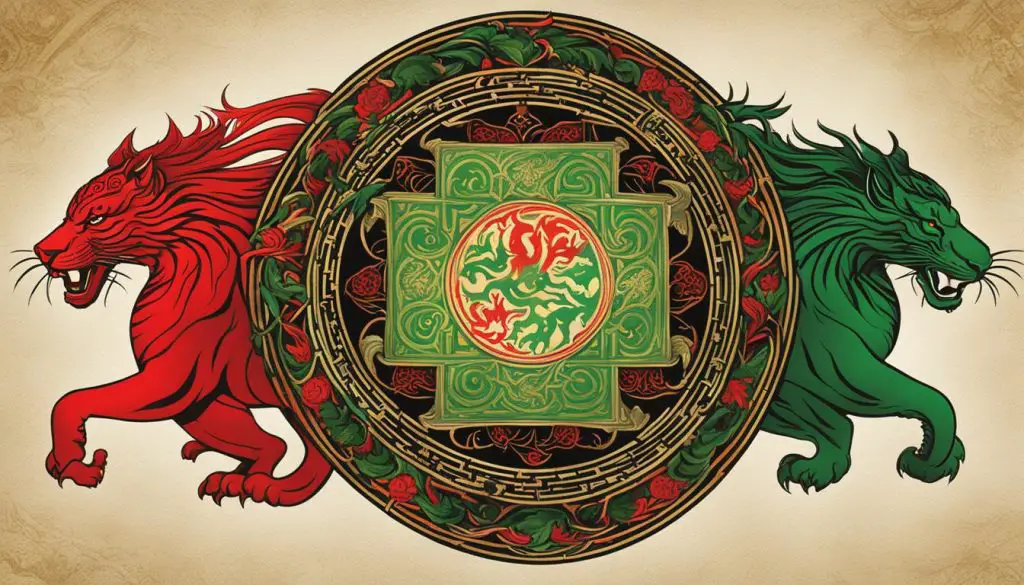
The Four Celestial Animals in Feng Shui:
| Celestial Animal | Symbolism | Associated Direction | Beneficial Placements |
|---|---|---|---|
| Black Tortoise | Longevity, wisdom, protection | North | Back of house or office |
| Green Dragon | Power, vitality, growth | East | Around entrances, living rooms |
| White Tiger | Courage, strength, righteousness | West | Front entrance, bedrooms |
| Red Phoenix | Rebirth, transformation, opportunities | South | Living rooms, dining areas |
By incorporating the Feng Shui celestial animals into your home or environment, you can harness their positive energies and enhance the flow of luck and prosperity. Whether you choose to display statues, paintings, or other representations of these animals, their symbolism and significance can bring a sense of harmony and abundance to your life. Remember to place them in their respective directions and create a balanced and harmonious space that aligns with the principles of Feng Shui.
Native Animals of China: Symbolic and Majestic Creatures
China is home to a diverse range of native animals that hold great importance in Chinese culture. These majestic creatures not only contribute to the rich biodiversity of the country but also have deep symbolic meanings. From the iconic giant panda to the elusive snow leopard, each animal carries its own significance in Chinese traditions.
The Giant Panda
One of the most well-known native animals of China is the giant panda. With its distinctive black and white fur, the panda is a symbol of peace, harmony, and friendship. It represents the gentle nature and resilience of the Chinese people. The giant panda is also often associated with good luck and prosperity.
The Asian Elephant
The Asian elephant is another native animal that holds cultural significance in China. It is revered for its strength, wisdom, and longevity. In Chinese mythology, the elephant is believed to be a celestial being that brings good fortune and protection. It is often depicted in art and literature as a symbol of power and nobility.
The Snow Leopard
The snow leopard, with its graceful presence and elusive nature, is considered a mystical creature in Chinese culture. It is associated with strength, agility, and independence. The snow leopard is seen as a symbol of resilience and survival in harsh environments. Its captivating beauty has made it a subject of admiration and inspiration in Chinese art.
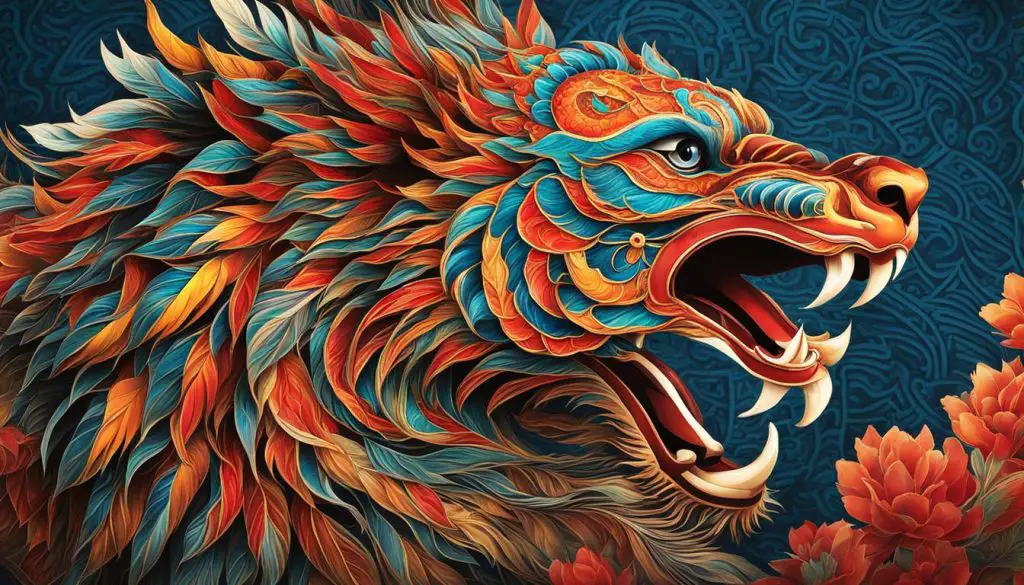
These are just a few examples of the native animals of China that hold great importance in Chinese culture. Each creature is deeply intertwined with the beliefs, values, and traditions of the Chinese people. By celebrating and preserving these majestic creatures, China emphasizes the importance of nature and its connection to the nation’s identity.
Animal Symbols in Chinese Art and Decor: Enhancing Luck and Prosperity
When it comes to Chinese art and decor, animal symbols hold immense importance. They are believed to bring luck, prosperity, and positive energy to homes and establishments. Incorporating these symbols into interior design can not only enhance the aesthetic appeal but also invite harmony and good fortune into your space.
One of the most prominent animal symbols in Chinese art is the dragon. The dragon represents power, strength, and good luck. It is often depicted as a mystical creature, and its presence in artwork signifies protection and prosperity. Adding a dragon motif to your wall art or furniture can infuse your home with auspicious energy.
Another significant animal symbol is the phoenix. The phoenix symbolizes rebirth, immortality, and prosperity. Its vibrant colors and graceful form make it a popular choice in Chinese art and decor. Incorporating the phoenix motif through paintings or sculptures can create a sense of elegance and attract positive energy.
| Animal Symbol | Meaning |
|---|---|
| Dragon | Power, strength, good luck |
| Phoenix | Rebirth, immortality, prosperity |
| Tiger | Bravery, protection, divine energy |
| Fish | Wealth, abundance, harmony |
The tiger and fish are also commonly seen in Chinese art and decor. The tiger represents bravery, protection, and divine energy, while the fish symbolizes wealth, abundance, and harmony. These animals are often portrayed together to signify a harmonious balance between protection and prosperity.
Incorporating lucky animal symbols in your Chinese-inspired decor can create a visually captivating and meaningful space. Whether it’s through paintings, sculptures, or decorative objects, these symbols serve as reminders of the rich cultural heritage and beliefs associated with Chinese art. By embracing these timeless traditions, you can invite luck, prosperity, and positivity into your life.
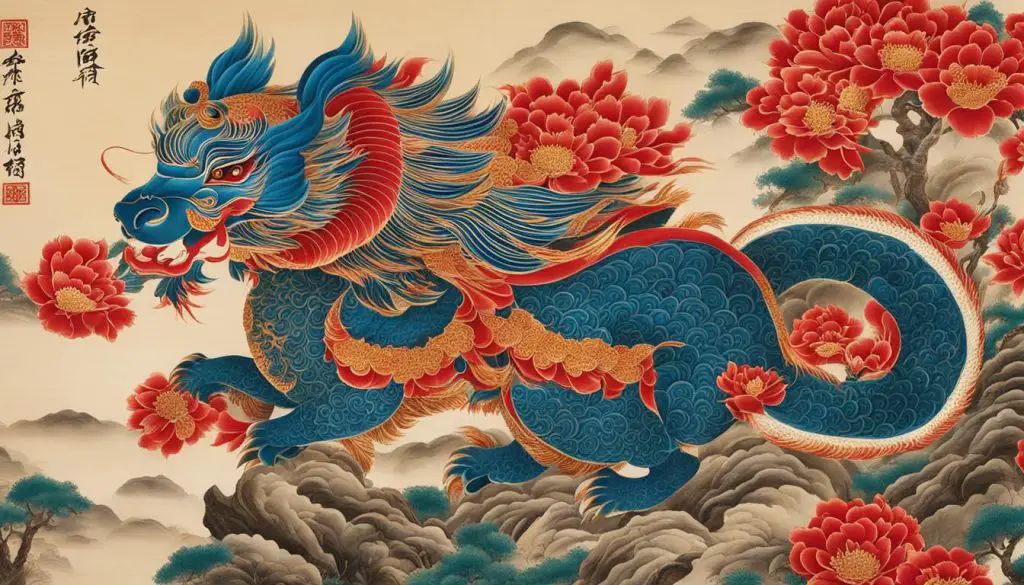
Conclusion
Animals hold a special place in Chinese culture, and their symbolism is deeply ingrained in the beliefs and traditions of the Chinese people. From the Feng Shui animals that bring positive energy to your home, to the Chinese zodiac animals that influence personality traits, and the celestial animals that guard harmony and prosperity, each creature carries its own significance.
By embracing and understanding the lucky animal symbolism in Chinese culture, you can tap into the power of these creatures to enhance your fortune and embrace positive energies. Whether through incorporating lucky animal decor into your home or immersing yourself in the stories and beliefs associated with these animals, you can create a harmonious and prosperous environment.
China’s native animals also play a role in the cultural fabric of the country, representing the rich biodiversity and majestic creatures that inhabit the land. By appreciating and respecting these animals, you not only contribute to the preservation of their habitats but also gain a deeper understanding of Chinese culture as a whole.
So, as you explore Chinese culture and its lucky animal symbolism, remember to incorporate these symbols into your life. Whether it’s through artwork, decorative items, or simply embracing the qualities that these animals represent, you can invite joy, harmony, and prosperity into your daily life.
FAQ
What animals are considered lucky in Chinese culture?
The animals considered lucky in Chinese culture include the bat, dragon, cricket, boar, deer, dog, monkey, rat, snake, elephant, goldfish, and toad.
How do animals play a role in Feng Shui?
Animals are placed in certain directions within a home to activate positive energies and attract good luck.
What are the animals of the Chinese zodiac?
The animals of the Chinese zodiac are the rat, ox, tiger, rabbit, dragon, snake, horse, ram, monkey, rooster, dog, and pig.
What are the four celestial animals in Chinese culture?
The four celestial animals in Chinese culture are the Black Tortoise, Green Dragon, White Tiger, and Red Phoenix.
What are some native animals of China with cultural significance?
Some native animals of China with cultural significance include the giant panda, Asian elephant, snow leopard, Tibetan macaque, and Siberian tiger.
How do animal symbols enhance luck and prosperity in Chinese art and decor?
Animal symbols such as dragons, tigers, fish, horses, birds, and the phoenix are believed to bring good fortune, abundance, and protection when incorporated into interior design and decor.

